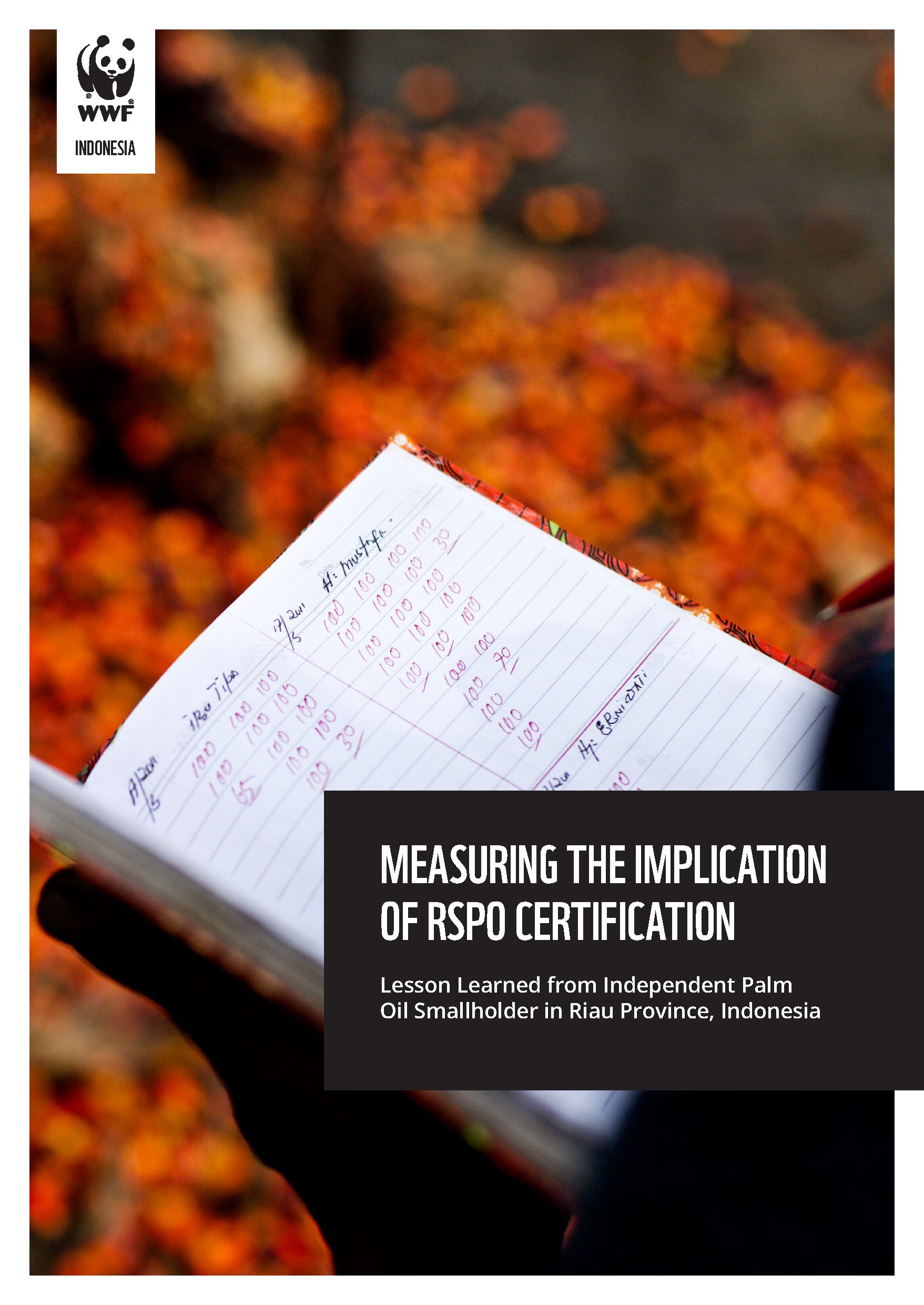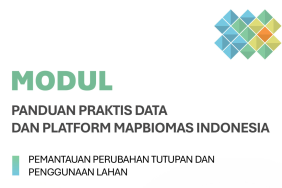MEASURING THE IMPLICATIONS OF IMPLEMENTING RSPO CERTIFICATION: A LEARNING PROCESS FROM INDEPENDENT OIL PALM SMALLHOLDERS IN RIAU PROVINCE
Increased attention to environmental issues and global market pressures on companies and governments have given rise to palm oil certification standards and schemes to ensure "sustainability" and minimize social and environmental impacts. In 2004, the Roundtable on Sustainable Palm Oil (RSPO), a voluntary certification, was established as the global standard for supply chains and palm oil businesses. Initially, the RSPO certification scheme was oriented toward large-scale producers (enterprises), but now more specific standards for small producers such as independent smallholders have been developed. The involvement of independent smallholders in the RSPO scheme is important since smallholder oil palm plantations in Indonesia alone cover an area of 5.82 million hectares or 40.5% of the total area of national oil palm plantations.
WWF Indonesia together with the Amanah Association in Pelalawan District, the Mandiri Association in Kuantan Singingi District, Riau Province, and related parties have worked and experienced the twists and turns of the process and stages of implementing RSPO certification from 2011 to 2019. Recognizing the lack of lesson-learned documentation about RSPO certification for independent smallholders, both the process and stages of obtaining certification as well as the benefits and impacts obtained by independent smallholders "before" and "after" RSPO certification. Therefore, notes in the RSPO certification process for independent smallholders need to be made as learning material about the successes or obstacles faced by independent smallholders or assistants in participating in the RSPO certification process for independent smallholders.
The study's results show that RSPO certification impacts independent smallholders ranging from aspects of sustainable plantation practices, to economic, social, and environmental. RSPO certification can increase the productivity of independent oil palm smallholders, provide credit incentives, strengthen institutions, and improve the application of soil and water conservation.
However, in its implementation, independent smallholders still face various challenges in the form of:
- Lack of technical knowledge of independent smallholders.
Currently, the number of farms owned by RSPO-certified independent smallholders is still low and the implementation is not optimal. This shows that independent smallholders have not implemented good agriculture practices.
- Lack of funding support.
Although RSPO has financial support for certification, it has not maximized efforts to speed up the process and increase the number of certified smallholders.
- Market Access.
Purchasing Fresh Fruit Bunches (FFB) is regularly a problem due to unstable FFB prices in the market.
- RSPO Certification Audit Mechanism
The challenges in this aspect are audit budgets that have not been on target, audit mechanisms that have not regulated conflicts related to other plantations outside the plantation designated for RSPO, and areas that have High Conservation Value (HCV).
Strategies for Facing the Challenges of Independent Smallholders
RSPO certification can be done if independent smallholders have independence and the ability to apply sustainability standards. This can be achieved by carrying out systematic community empowerment through three stages, namely 1) organizing independent smallholders, 2) intensive mentoring, and 3) strengthening independence. In addition, the initial funding planning for RSPO certification needs to be prepared in advance so that the facilitation process can run well.
Recommendations
Four things need to be considered for the RSPO certification process firstly, it requires an effective facilitation scheme and relevant competencies from stakeholders including regarding funding support. Secondly, collaboration with stakeholders is important in initiating, monitoring, and ensuring the implementation of RSPO principles. Thirdly, both central and local governments need to monitor deforestation management. Finally, the RSPO needs to consider funding schemes for independent palm oil associations that have smaller plantation areas and fewer members.




